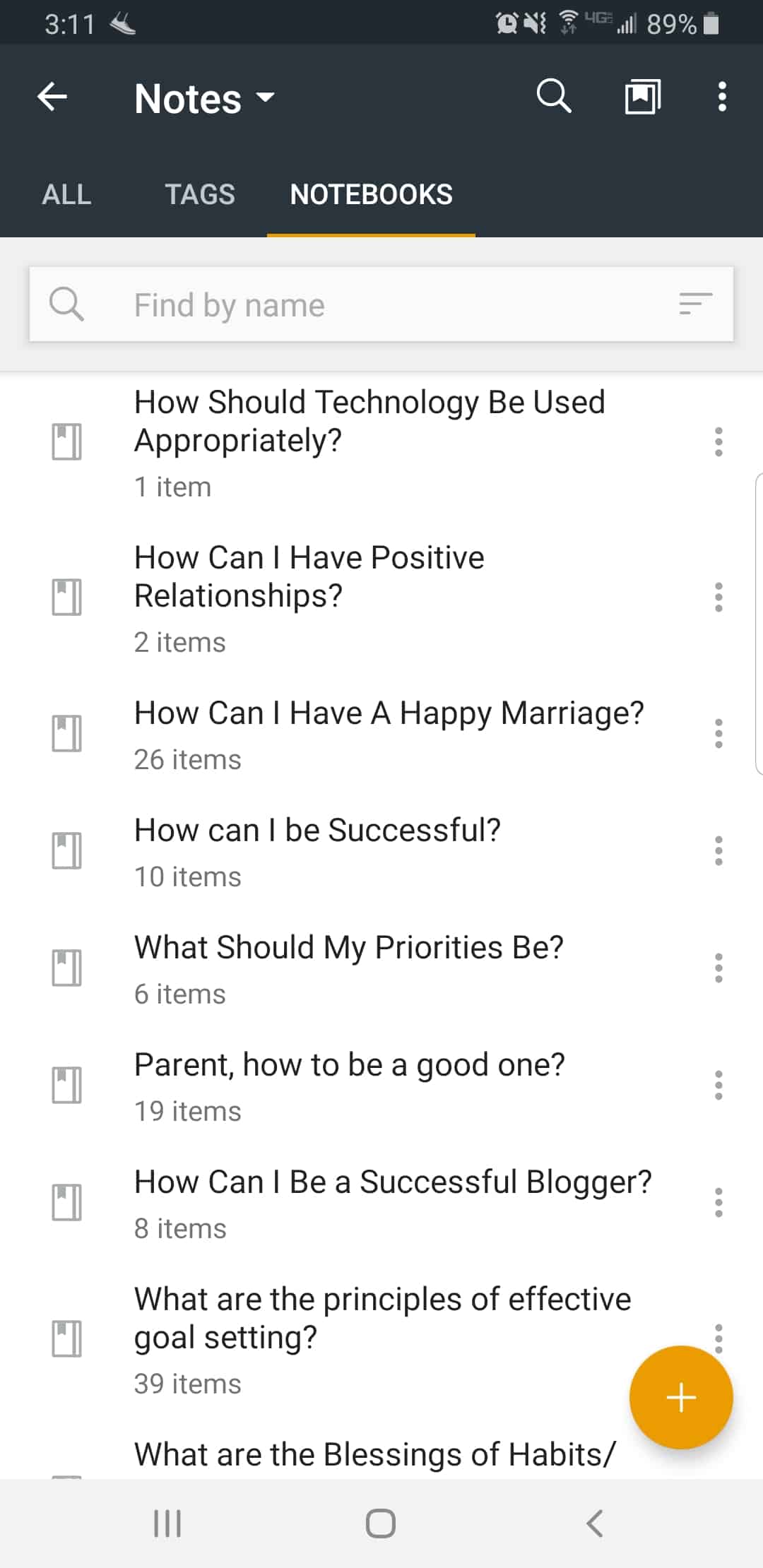10 Proven Steps for Effective Lifelong Learning
After graduating college and devoting myself to entrepreneurship full-time, I started hearing from other entrepreneurs about how many books they were reading per year with one guy telling me that he was trying to read one book every day!
Have you heard that the average CEO reads 60 books per year? I have. Have you seen any research backing up that claim? I haven’t.
I think we hear these kinds of statistics and start believing that the more books we read, the more successful we will be. I’d beg to differ.

In fact, science shows that reading is a “time-consuming study strategy that yields negligible benefits at the expense of much more effective strategies that take less time.”1
While in my senior year of college, I started a business that just two years later consistently generated enough passive income to support my family on less than 5 hours of work per week. How many books was I reading per year? Not very many. Maybe five.
So how did I learn what I needed to know in order to start and grow my business? Instead of focusing on the quantity of information (i.e. number of books per year), I was focused on the quality of information, regardless of whether the information came from a book, podcast, or blog post.
In this article, I want to share with you the step-by-step approach I use for effective lifelong learning.
1. Realize that You Know Nothing
The first step in learning something new, is realizing that you know very little. As Socrates said, "True knowledge exists in knowing that you know nothing."
Think about this, it would take 57,000 years to read everything on the internet2. Let's say you've spent 2 years of your life reading books and articles (a very generous estimate). That would mean you've only consumed .0035% of that information. And considering that the internet has only been around since 1990, this barely captures a fraction of all the knowledge out there. As you can tell, even the smartest person in the world knows next to nothing.
Recognizing and reminding yourself of this fact is crucial because “Self-perceptions of expertise increase close minded cognition.”3 If you are going to improve yourself, you need to be open to new ideas. Upgrading your ideas is the key to upgrading your life.
Upgrading your ideas is the key to upgrading your life.
2. Be Curious
When you realize that your current beliefs are based on a very small amount of knowledge, you should become very interested in gaining more. And as Gilbert Chesterton said, “There are no uninteresting things, only uninterested people.”
Once you've developed such curiosity, learning becomes an exciting adventure: “If you’re curious, nothing is a chore; it’s automatic – you want to study. Cultivate curiosity, and life becomes an unending study of joy.”4
3. Ask The Right Question
When you are curious, you will find yourself asking more and more questions. This is good. The more questions, the better.
When a question comes to your mind, make sure to capture it by writing it down. I like to keep a Google Doc full of questions. Whenever a new one pops in my mind, I add it to the list.
It is important to recognize that not all questions are equally valuable. As Tony Robbins often says, "The quality of your life is the quality of your questions."5 If you focus on answering meaningful questions, you will have a meaningful life.

Because you won't have time to answer all of your questions, I'd recommend deciding on one question from your list that is the most valuable. Like Ruben Chavez, I often find that the most valuable questions are those that are the most relevant to the challenges I am currently facing:
A good rule of thumb here is to read to solve immediate problems. This will help the information stick in your mind more easily. When you read in order to solve a problem or find an answer to a specific question, you are more alert and receptive to new information, which increases comprehension. Focus on learning information you can use now, not at an undefined date in the future. The more relevant information is to your life, the more likely you are to apply it, remember it, and use it again in the future.6
4. Search for Answers
Start with Quick Reads
Instead of picking up a 1,000-page book, I often start my search by reading through blogs or watching short YouTube videos. Doing this not only provides me with valuable information, but it also helps me discover books that other people have used to find answers to my question. For instance, if a lot of the blog posts I encounter quote from a certain book, I make a note that this book may be useful later on in my quest.
Use Books Only as Needed
If I've already gotten enough information from blogs/videos, I will often not even resort to reading books. I often find that books contain a lot of fluff that is irrelevant in actually answering the question at hand.
If I feel like there is still more I need to learn, though, I will search Google for summaries of relevant books. I am often amazed at how much information is contained in online book summaries. You can often get the most important information from a book without ever actually reading it.
For lesser known books, you may not be able to find a book summary. In this case, I check Amazon reviews to see if other people found value in the book, and if so, I will buy and read it. I am not a fan of so called "speed reading," but I will often skip over entire sections of the book that are not relevant to the question at hand.
Remember, your goal shouldn't be to read X number of books from front to back. Rather, your goal is to find specific knowledge that will immediately add to your quality of life. This will make your learning extremely effective: “Learning with a purpose increases your attention, comprehension, retention, and organizes your thoughts.”7
5. TAKE NOTES
While I am searching through blogs, videos, and books, I will carefully save any quotes/ideas that I find useful. I find it helpful to have a notes program that allows you to create notes within folders. I name each folder a question that I am working on (i.e. "What are the Principles of Effective Goal Setting?"), and then every time I encounter a quote/idea that helps to answer that question, I add it as a note to that folder. I like using my church's Gospel Library App for this, but I'm sure there are many other note-taking apps out there that can perform a similar function.

No matter how you end up taking notes, though, the important thing is that you do take notes in some shape or form. As Kevin Horsley says, "The secret to accelerated learning is superior organization."8
6. Organize Your Notes
Once I feel like I've collected enough quotes, I start organizing my notes. I do this by listing key concepts that answer the question at hand and then listing supporting quotes underneath each concept. For example, here is the outline I made in preparation for writing this article:

7. Write Your Answer in Your Own Words
With your outline in hand, you are ready to write an organized, coherent answer to your question. This is an essential part of deep learning known as Elaboration: “Elaboration is the process of giving new material meaning by expressing it in your own words and connecting it with what you already know. The more you can explain about the way your new learning relates to your prior knowledge, the stronger your grasp of the new learning will be, and the more connections you create that will help you remember it later.”9
Elaboration happens every time I write a blog article or write in my journal each night. What's more important for your learning -- reading or writing? I would argue that writing is far more important. When you write what you are learning, it becomes part of you.
When you write what you are learning, it becomes part of you.
8. Teach It
Once you've learned something, the best way to deepen your understanding and remember it is to teach it to someone else: "One of the best ways to learn is to teach. When you learn something with the intention of teaching it later, you pay attention differently. It forces you to clarify concepts and ideas in your mind and recall them in a way that increases both your comprehension and retention. The ability to teach something successfully is one of the best indicators that you truly understand it."10
Even if you live by yourself, you have no excuse for not teaching people what you are learning. The internet has made it possible for anyone to teach. You could share what you learned on a forum or a blog. You could record a YouTube video. You could even just share it on Facebook. Don't be afraid to share your new knowledge. Remember, knowledge is power, and with great power comes great responsibility. It is your responsibility to share what you've learned.
9. Act on It
As Jim Rohn says, "Don't let your learning lead to knowledge. Let your learning lead to action." The purpose for answering your question was to learn things that would help you overcome and handle current challenges. If you don't use what you learned, this whole process was for nothing.
Not only will acting on what you learn improve your life, but it will prevent you from forgetting it. As the saying goes: "use it or lose it."
Beyond simply remembering what you've learned, you will gain an even deeper understanding as you "Strive to live in harmony with your understanding... Acting on what you have learned will bring added and enduring understanding."11

10. Regularly Test Yourself
If you foresee yourself needing your new knowledge several years down the road, you will need to make sure it gets stored securely in your long-term memory. Re-reading an article, a book, or even your own notes is the least effective way to do this. Instead, you need a system for testing yourself at regular intervals: “One of the most striking research findings is the power of active retrieval—testing—to strengthen memory, and that the more effortful the retrieval, the stronger the benefit.”12 My preferred method for forming and maintaining long-term memories is through the use of simple flashcards (See "How to Perfectly Memorize Anything with High-quality Flashcards").
Conclusion
The 10 steps I've listed here take more effort than simply reading the most recent self-help book to hit the market. But, these steps will result in learning that is far more beneficial and long-lasting.
So, the next time someone tries to convince you that you need to be reading 60 books per year to keep up, don't pay them any mind. Just remind yourself what true learning looks like.
Hi fellow human! Thanks for visiting my personal blog. I’m an intentional family man who is currently passionate about parenting, family culture, homeschooling, and self improvement. This blog isn’t a business. It’s just my way of connecting with people with just as much passion for these topics as me. So, if you enjoy my musings, be sure to reach out.
- Make It Stick by Peter C. Brown, Henry L. Roediger III, and Mark A. McDaniel
- "How Long Would it Take to Read the Whole Internet" by The Next Web
- Journal of Experimental Social Psychology
- Unlimited Memory by Kevin Horsley
- Unlimited Power by Tony Robbins
- ”4 Principles of Effective Learning” by Ruben Chavez
- Unlimited Memory by Kevin Horsley
- Unlimited Memory by Kevin Horsley
- Make It Stick by Peter C. Brown, Henry L. Roediger III, and Mark A. McDaniel
- ”4 Principles of Effective Learning” by Ruben Chavez
- Preach My Gospel by The Church of Jesus Christ of Latter-day Saints
- Make It Stick by Peter C. Brown, Henry L. Roediger III, and Mark A. McDaniel

